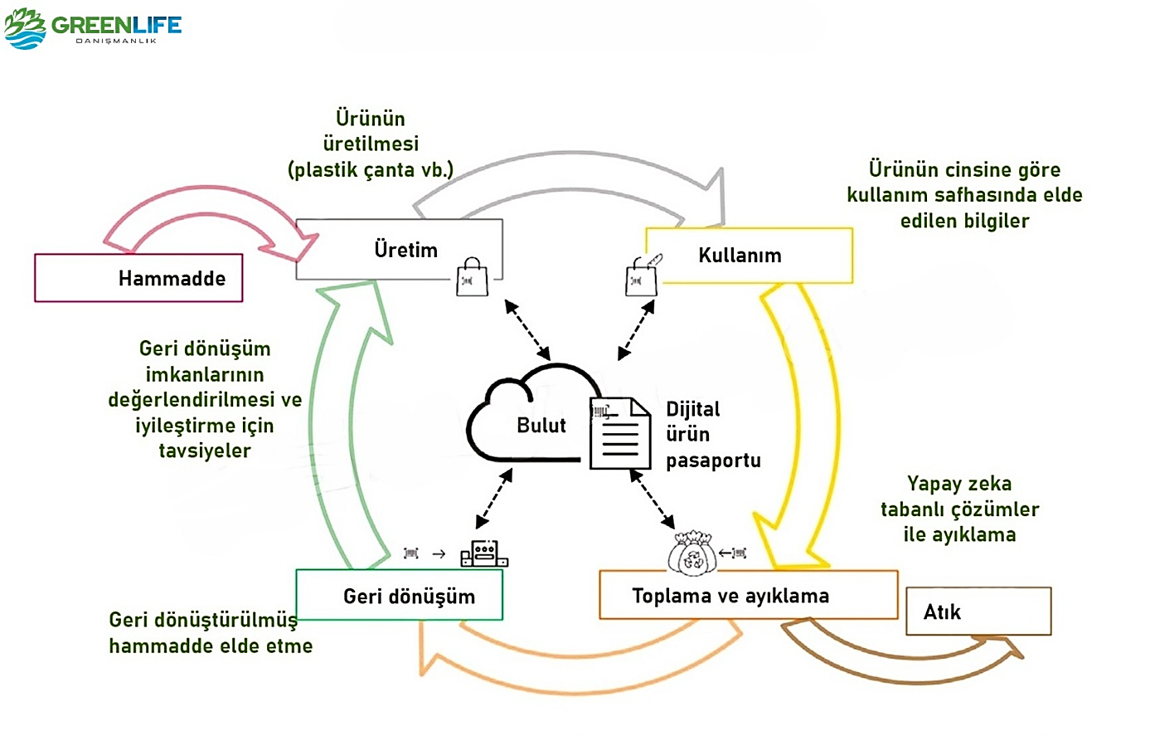
Digital Product Passport (DPP): Advancing Transparency, Sustainability, and the Circular Economy
The Digital Product Passport (DPP) functions as a digital identity card, ensuring transparency and traceability throughout a product’s life cycle. It provides detailed information about the materials used, production methods, and environmental impacts from manufacturing to recycling. Designed to align with the European Union’s sustainability and circular economy objectives, the DPP empowers consumers to make informed choices and motivates producers to adopt more sustainable practices.
What Is the Digital Product Passport (DPP) and How Does It Work?
The DPP is a system that digitally tracks all stages of a product’s life cycle,from raw materials and production to distribution, use, and recycling. Data is a accessible through technologies such as QR codes or RFID chips embedded on the product. Consumers and other stakeholders can scan these codes to access detailed information about the product’s origin, the materials used, the production conditions, and recycling instructions.
The Importance and Benefits of the DPP
The DPP plays a critical role in achieving sustainability and circular economy goals.
- Transparency and Traceability: It provides detailed information about product manufacturing processes and components, ensuring transparency across the supply chain.
- Sustainable Consumption: It helps consumers to assess the environmental impact of products, supporting more informed and sustainable purchasing decisions.
- Circular Economy: Facilitates the reuse, repair, and recycling of products by providing the neccessary information to reduce waste and improve resource efficiency.
- Regulatory Compliance: Eases alignment with the European Union’s sustainability and environmental protection regulations.

Applications of the DPP
The DPP is widely used, particularly in the following sectors:
- Apparel and Textiles:
- Tracking the origin of materials and production processes.
- Managing sustainable fabrics and recyclable textile products.
- Providing information on product care, repair, and recycling.
- Electrical and Electronic Equipment:
- Tracking the components of electronic devices (e.g., lithium in batteries or semiconductor materials).
- Supplying data on fault history, repair information, and the avail ability of spare parts.
- Supporting e-waste management and optimizing device recycling.
- Construction and Building Materials:
- Providing information on the origin, properties, and recyclability of construction materials.
- Promoting the use of sustainable building materials.
- Gathering data required for green building certification.
- Tire Industry:
- Monitoring the sustainable and ethical sourcing of raw materials and tracking environmental impacts from production to recycling.
The Digital Product Passport is precisely designed to offer such ease and transparency. Through QR codes or similar technologies, all information about a product, from manufacturing to recycling, will be easily accessible.. This feature not only empowers consumers to make informed choices and gives producers the opportunity to make their sustainability goals more visible.
For instance, when buying a garnment, , you can see what materials it is made from, ehere it was processed in, and its carbon footprint. Similarly, you will instantly be able to learn how much environmental impact an electronic device had during production or what its recycling options are.
Just imagine with this system:
- Questioning the origin of products will only take a few seconds.
- Better information will lead to less waste and promote the circular economy.
- Due to increased transparency, companies engaging in greenwashing will decline, while brands offering truly sustainable solutions will stand out.
This system will encourage more environmentally conscious consumer behavior and make producers feel more accountable.